I have never seen greater monster or miracle in the world than myself: one grows familiar with all strange things by time and custom, but the more I frequent and the better I know myself, the more does my own deformity astonish me, the less I understand myself.
(Book III, Ch. 11, “Of Cripples”)
Michel de Montaigne
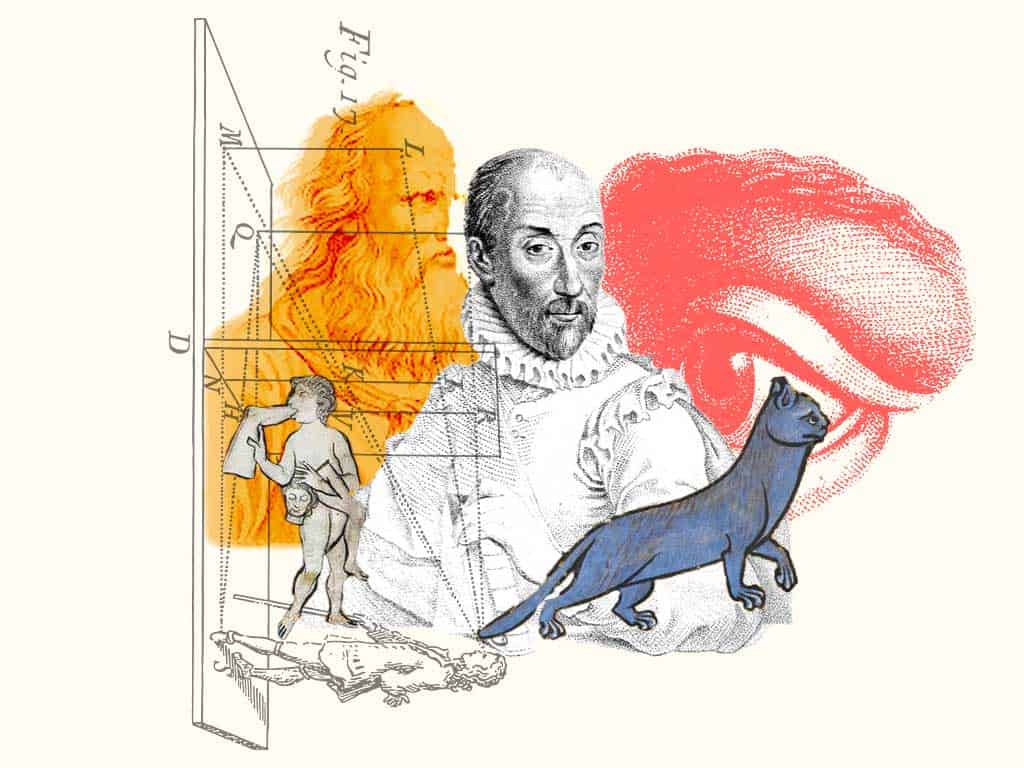
Essays
Michel de Montaigne
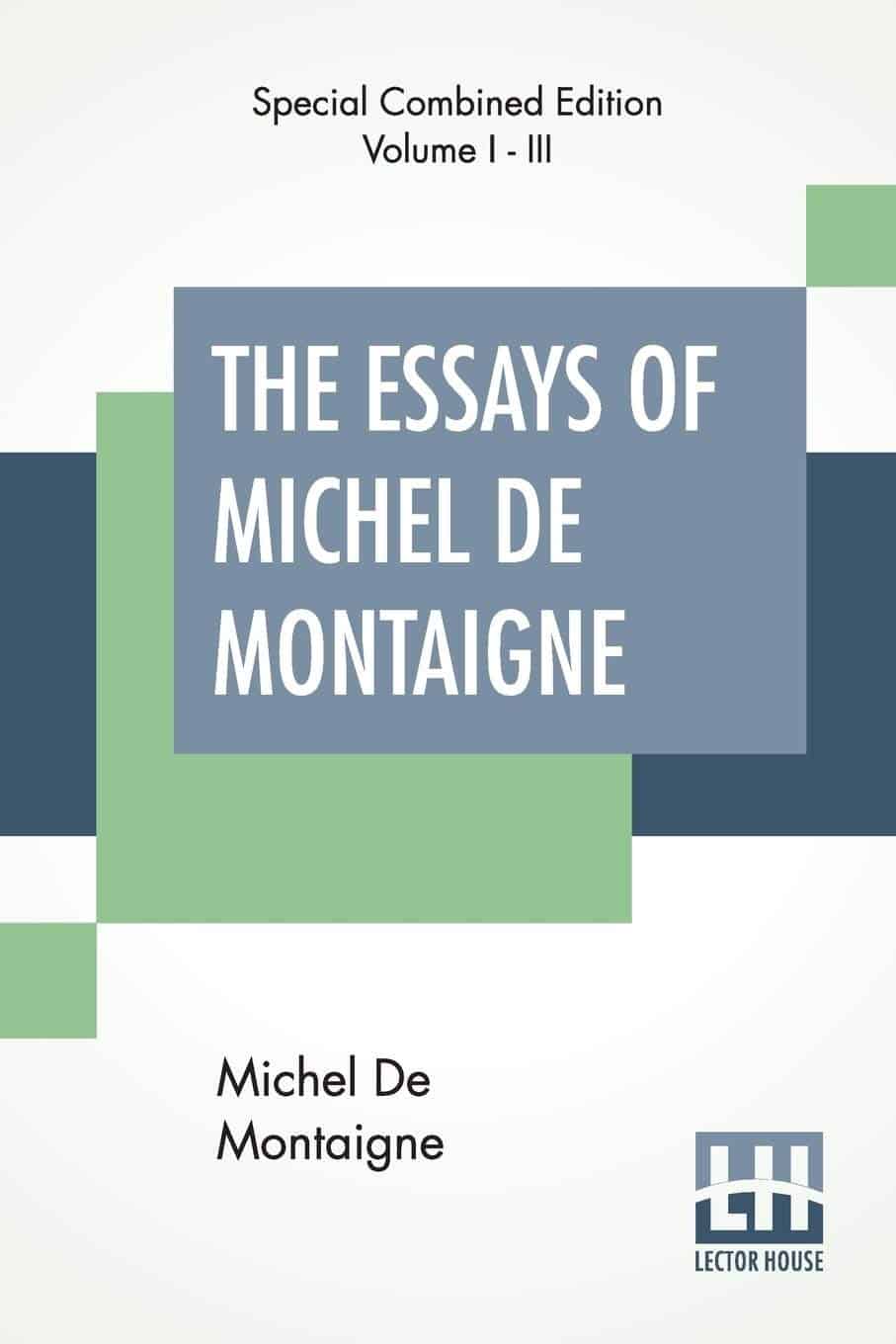
Hazlitt, William, ed. “Essays of Michel de Montaigne.” Translated by Charles Cotton
...Montaigne is credited with being the father of the essay genre.
Montaigne wrote three books of Essays, philosophical attempts in prose to understand diverse expressions of human behavior. Because of these works, Montaigne is credited with being the father of the essay genre. The fact that in French the word essay means “to attempt” or “to try” reflects Montaigne’s practice of building on his own experience to create knowledge that goes beyond received precepts and conventions of his time. In addition to engendering a literary genre, he is credited as being one of the first thinkers to write about the human sciences. His essays reflect a shift away from the certainty of Medieval thinkers. They are examples of Renaissance humanism, philosophical skepticism, cultural relativism and the distinction of natural law from positive law. At the beginning of his project, he claims his goal is to know man, reflecting that the same behavior can have opposite effects and that differing behavior can have the same effect. The longest and most often anthologized essay, “An Apology for Raimond Sebond” reveals his philosophical skepticism, that we cannot necessarily trust our own rationality.
Why This Text is Transformative?
Students may be most interested in his writing against violent governmental actions and corruption, both in French domestic policy and in the actions of Europeans attempting to conquer the Americas.
Readers of Montaigne revel in the way he shook many of the foundations of Western thought. Students may be most interested in his writing against violent governmental actions and corruption, both in French domestic policy and in the actions of Europeans attempting to conquer the Americas. His delineation of cultural relativism is also very relevant to students’ increasing interest in human diversity. Montaigne resists the inclination to normalize aristocratic and bourgeois European culture; he defines barbarism as a subjective term people use to describe difference from the dominant culture. Another assumption he questioned was that of the superiority assigned to humans over animals. Students may also be inspired by his celebration of human imagination, which he sees as the cause of miracles, visions, and extraordinary events.
A Focused Selection
Study Questions
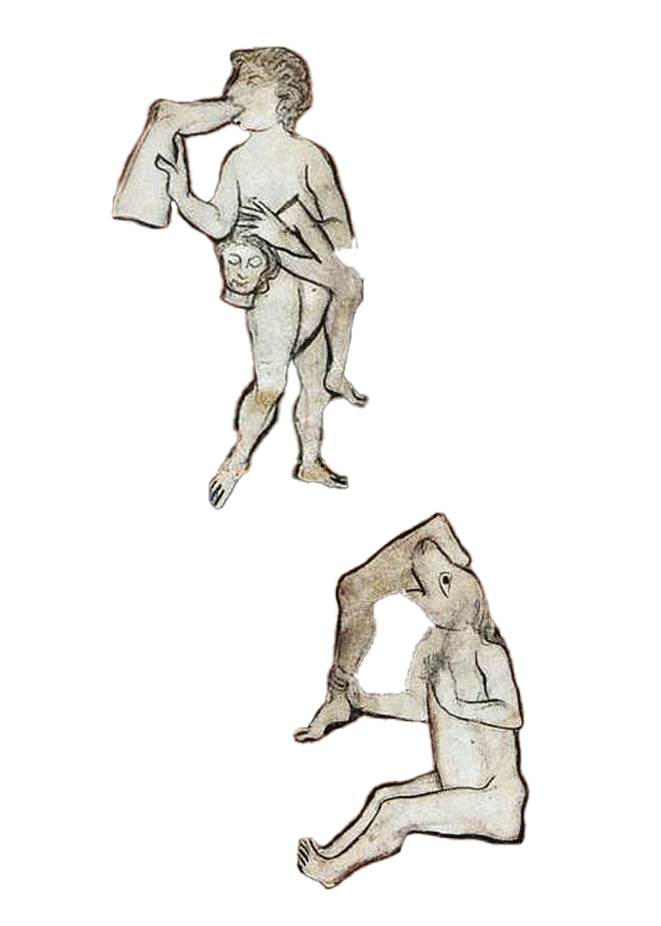
Regarding the then new literary genre called “the essay,” what are the writing practices that Montaigne uses in his development of this genre? What instances does he use of commentary on the behavior of others? What instances does he use of self-reflection? How does another essay that show some stylistic techniques that could be said to have been influenced by Montaigne’s writing? What are your experiences with writing essays? What sorts of things do you discover about yourself in the process of writing?
In “Of Cannibals,” what examples does Montaigne provide that barbarity or barbarism is the behavior that people defining it does not practice? How is one of Montaigne’s statements inform twenty-first-century interest in the appreciation of cultural diversity? Do you judge works of art based on criteria of sophistication vs. barbarity?
In “Of Imagination,” how does Montaigne define this unique ability of humans? What positive qualities and effects does he attribute to it? Does he include any possible negative results of imagination? What role does imagination play in the practical and creative life of a student today? Does imagination factor into your success as a college student, including in both liberal arts and STEM classes?
Building Bridges
A Recommended Pairing
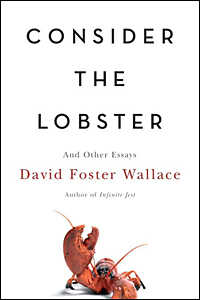
Selected David Foster Wallace essays, including “Consider the Lobster,” “Shipping Out: On the (Nearly Lethal) Comforts of a Luxury Cruise,” “Tense Present: Democracy, English, and the Wars over Usage,” and Wallace’s 2005 Kenyon Commencement Address from May 21, 2005. Wallace’s keen observations of human behavior (both his own and others’) and his incisive questioning of cultural customs provide initial points of contact with Montaigne’s project. Both writers are known for their constant inquiry, often never coming to a definitive conclusion regarding the topics of their essays. They often question dogmatism and pedantry and claims to absolute certainty in knowledge and demonstrate variety in human nature. These writers make both serious and wry observations about human thought and behavior, reporting on what is, from the perspective of their essays, a foreign culture and its foreign practices, leading us to reconsider our own definitions of civility and self-awareness.
Supplemental Resources
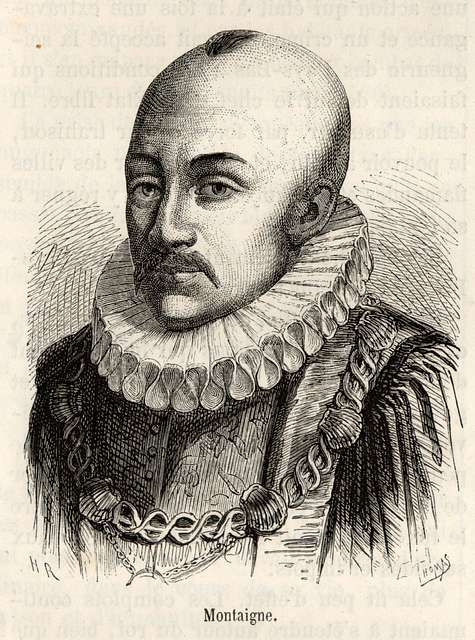
Don Quixote and the Windmills, 1945 - Salvador Dali - WikiArt.org
Cave, Terrence. How to Read Montaigne. Granta Books, 2007.
Henry, Patrick, ed. Approaches to Teaching Montaigne’s “Essays.” MLA, 1994.
Foglia, Marc and Emiliano Ferrari, “Michel de Montaigne,” The Stanford Encyclopedia of Philosophy (Winter 2019 Edition), Edward N. Zalta, ed.
Hazlitt, William, ed. “Essays of Michel de Montaigne.” Translated by Charles Cotton
“Michel Eyquem de Montaigne” (Audio Recordings of Montaigne’s Works). Librivox
Wallace, David Foster. “30 Free Essays and Stories by David Foster Wallace on the Web.” Open Culture, February 22, 2012
Transcription of the 2005 Kenyon Commencement Address – May 21, 2005. Purdue University
Text Mapping
Discipline Mapping
English/Composition Studies
Humanities
Psychology
Philosophy & Religion
Page Contributor


